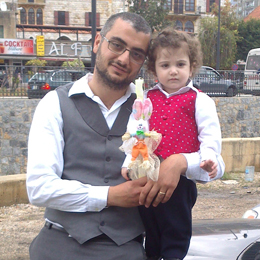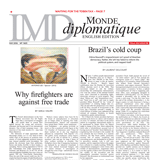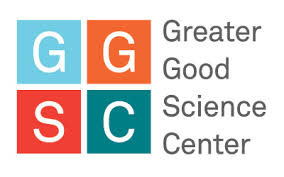
JANUARY 25, 2016 News Release
The orange hued satanic ghoul of 1600 Pennsylvania Avenue lusts for a Nobel Prize, oblivious to its origin…
Alfred Bernhard Nobel (/noʊˈbɛl/noh-BEL;[1] Swedish: [ˈǎlfrɛd nʊˈbɛlː]ⓘ; 21 October 1833 – 10 December 1896) was a Swedish chemist, inventor, engineer, and businessman. He is known for inventing dynamite, as well as having bequeathed his fortune to establish the Nobel Prizes.[2
Thank you, Wikipedia…
Dr. Gabor Maté is a Holocaust survivor and leading expert on trauma:
Ahmed Eldin is an award winning journalist of Palestinian descent:
U.S. Senator Bernie Sanders sat down with the Kyiv Independent on Feb. 27 to share his concerns about Trump’s growing alignment with Russia and other authoritarian regimes, what a possible U.S.-Russia alliance would mean for the American people, the role of billionaires like Elon Musk in shaping both domestic and international political discourse, and why defending Ukraine is crucial for the future of global democracy.
(the Kyiv Independent – https://kyivindependent.com )
Climate and mental health: A roadmap to global heat resilience | PLOS Mental Health
— Read on journals.plos.org/mentalhealth/article(open access)
“Even as this report sounds the alarm, Trump’s team of climate deniers are twisting themselves into pretzels to justify blocking national and international climate action. If America’s leaders don’t start listening to scientists, the whole world is going to pay a truly terrible price.”
Mandated by law and released every four years, the Fourth National Climate Assessment (or NCA4) — which states that recent years have seen “record-breaking, climate-related weather extremes, and the last three years have been the warmest years on record for the globe”— concludes (with emphasis in the original) that “based on extensive evidence, that it is extremely likely that human activities, especially emissions of greenhouse gases, are the dominant cause of the observed warming since the mid-20th century. For the warming over the last century, there is no convincing alternative explanation supported by the extent of the observational evidence.”
BEIRUT — The agreed parameters of a Joint Comprehensive Plan of Action (JCPOA) on Iran’s nuclear program that were reached Thursday between Iran and the P5+1 powers represent a monumental achievement that affirms the power of reason and diplomacy over the ravages of fear and warfare. The technical details of the complex understanding remain to be completed. For now, though, the lasting significant aspects of this development are about the past and the future: The past being the bold leadership that Iran and the United States have shown in launching and advancing the diplomatic negotiations, and the future being about the potential significant regional changes that will follow the implementation of a full agreement…
::: click here for piece in full @ AlterNet :::
Rami G. Khouri…
View original post 31 more words
“There are certain things in our nation and in the world which I am proud to be maladjusted and which I hope all men of good-will will be maladjusted until the good societies realize — I say very honestly that I never intend to become adjusted to — segregation and discrimination. I never intend to become adjusted to religious bigotry. I never intend to adjust myself to economic conditions that will take necessities from the many to give luxuries to the few. I never intend to adjust myself to the madness of militarism, to self-defeating effects of physical violence. But in a day when sputniks and explorers are dashing through outer space and guided ballistic missiles are carving highways of death through the stratosphere, no nation can win a war. It is no longer the choice between violence and nonviolence. It is either nonviolence or nonexistence…”
Martin Luther King, Jnr.
View original post 20 more words
This report is the concluding scientific product of the Arctic Resilience Assessment, a project launched by the Swedish Chairmanship of the Arctic Council.
The project’s 2013 Interim Report provided the conceptual foundations for this final report, as well as a detailed survey of resilience research in the Arctic to date. This Final Report extends that effort by providing a novel assessment of Arctic change and resilience, including factors that appear to support or weaken resilience. It provides an overview of tools and strategies that can be used to assess and build resilience in the Arctic, and considers how the Arctic Council can contribute to those efforts.
The authors hope that the insights presented in the report will help Arctic nations to better understand the changes taking place in the region, and contribute to strengthening Arctic people’s capacity to navigate the rapid, turbulent and often unexpected changes they face in the 21st century.
just click above for report in full pdf


It is exactly one year since Maxeem Georges and his young family arrived in Australia at the end of their long journey from war-torn Syria. Addressing our 2016 World Refugee Day Breakfast, Maxeem reflected on how the Syrian war has changed the course of his life forever.
| Read Maxeem’s story |
“Rupert is a tremendous guy. I think Rupert [who for several years lived in the Trump building on 59th and Park Avenue in Manhattan] is one of the people I really respect and like. And I think Rupert respects what I’ve done.” But what about Murdoch’s grumpy Trump tweets? “When I got into the world of politics, that was a different realm for me and maybe he felt differently. But I think he respects what I’ve done and he’s a tremendous guy and I think we have a very good relationship.”
Extract from Michael Wolff @ the The Hollywood Reporter (01/06/16)
ps. here @ the interpretOr, we note that the ascendancy of both megalomaniacs was facilitated by the late, and by no means great, Roy Cohn, who arranged Murdoch’s first Oval Office meeting with President Ronald Reagan in 1983…
|
TOP STORIES THIS WEEK
|
| The Secret History of Superdelegates
712 Democratic officials will decide whether Clinton or Sanders wins the nomination. An In These Timesinvestigation shows that’s just what the party planned all along.
BY BRANKO MARCETIC
The private meetings that led to the creation of superdelegates have never been published or made public — until now.
BY IN THESE TIMES EDITORS
The paper seems bent on taking down Bernie.
BY ADAM JOHNSON
Finkelstein’s book is a call for Jewish suffering to be seen as part of the larger history of suffering under colonialism.
BY MAX AJL
A member of the 1982 commission explains why they created superdelegates and what they hoped to prevent.
BY BRANKO MARCETIC
|
| WORKING IN THESE TIMES |
| The Verizon Strike Is Not Just About Wages. It Is About Power and Domination Over Workers.
Corporations love the ‘sharing economy’ because it’s built on one thing: greed.
BY ALEX GOUREVITCH
|
|
RURAL AMERICA IN THESE TIMES
|
| Big Oil Plots to Exclude Public from Public Land Auctions
Keep It In The Ground is a campaign based on the principle that fossil fuels on public lands must be left inthe ground.
BY STEVE HORN
|

Between March 23 and April 2, 2016, Teaching Tolerance surveyed approximately 2,000 teachers, asking them how the presidential campaign was affecting their students and their teaching. The results indicated that the campaign is having a profoundly negative impact on schoolchildren across the country, producing an alarming level of fear and anxiety among children of color and inflaming racial and ethnic tensions in the classroom. Many students worry about being deported. Many educators fear teaching about the election at all.
A synthesis of our survey results make up the content of this report:The Trump Effect: The Impact of the Presidential Campaign on Our Nation’s Schools. A complete listing of the 5,000 survey comment is available here.
excerpts:
“My students are terrified of Donald Trump,” says one teacher from a middle school with a large population of African-American Muslims. “They think that if he’s elected, all black people will get sent back to Africa.”
“A Portland, Oregon, middle school teacher reported that her principal had imposed a “gag order” on teachers, prohibiting them from talking about the election. But the order didn’t stop one of her students from telling an immigrant classmate, “When Trump wins, you and your family will get sent back.” On the survey she posed the question, “What does a teacher do? I can assure you that if a student says that loudly and brazenly in class, far worse is happening in the hallway.”
::: simply click cover pic above to access report in pdf @ teachingtolerance.org :::
Through treating everything from strokes to car accident traumas, neurosurgeon Jocelyne Bloch knows the brain’s inability to repair itself all too well. But now, she suggests, she and her colleagues may have found the key to neural repair: Doublecortin-positive cells. Similar to stem cells, they are extremely adaptable and, when extracted from a brain, cultured and then re-injected in a lesioned area of the same brain, they can help repair and rebuild it. “With a little help,” Bloch says, “the brain may be able to help itself.”
Swiss neurosurgeon Jocelyne Bloch is an expert in deep brain stimulation and neuromodulation for movement disorders. Her recent work focuses on cortical cells, called doublecortin, related to neurogenesis and brain repair. In collaboration with Jean François Brunet and others, she is pioneering the development of adult brain cell transplantation for patients with stroke, using their own stem cells. She aims at gathering all these novel therapeutic strategies under a common umbrella that will optimize treatment options for patients suffering from neurological impairments. She is in charge of the functional neurosurgery unit at the Lausanne University Hospital (CHUV).

By Laura Pinger, Lisa Flook | February 1, 2016 | 7 CommentsLaura Pinger and Lisa Flook share their lessons from creating a “kindness curriculum” for young students
Walking to class one day, one of us (Laura) saw a young student crying and waiting for his mother to arrive—he had split his chin while playing. When Laura got to class, the other students were very upset and afraid for their friend, full of questions about what would happen to him. Laura decided to ask the class how they could help him.
“Caring practice!” exclaimed one of the children—and they all sat in a circle offering support and well wishes. The children immediately calmed and they continued with their lesson.
This is what’s possible when kids learn to be kind at school.
Various mindfulness programs have been developed for adults, but we and our colleagues at the Center for Healthy Minds at the University of Wisconsin, Madison, wanted to develop a curriculum for kids. Every school teaches math and reading, but what about mindfulness and kindness?
We ended up bringing a 12-week curriculum to six schools in the Midwest. Twice a week for 20 minutes, pre-kindergarten kids were introduced to stories and practices for paying attention, regulating their emotions, and cultivating kindness. It’s just the beginning, but the initial results of our research, coauthored with Professor Richard Davidson and graduate research assistant Simon Goldberg, suggest that this program can improve kids’ grades, cognitive abilities, and relationship skills.
::: click here for this piece continues free + in full @ Greater Good Science Center :::

SEE MORE
Human Rights Watch is a nonprofit, nongovernmental human rights organization made up of roughly 400 staff members around the globe. Its staff consists of human rights professionals including country experts, lawyers, journalists, and academics of diverse backgrounds and nationalities. Established in 1978, Human Rights Watch is known for its accurate fact-finding, impartial reporting, effective use of media, and targeted advocacy, often in partnership with local human rights groups. Each year, Human Rights Watch publishes more than 100 reports and briefings on human rights conditions in some 90 countries, generating extensive coverage in local and international media. With the leverage this brings, Human Rights Watch meets with governments, the United Nations, regional groups like the African Union and the European Union, financial institutions, and corporations to press for changes in policy and practice that promote human rights and justice around the world.
Watch a video about Human Rights Watch and how we work:
This video features two Human Rights Watch investigations in 2013, including the al-Bayda massacre and the Ghouta attacks.
|
TOP STORIES THIS WEEK
|
|
Iowans have a long history of breaking from party orthodoxy. Our reporting from the state shows that could be good news for Sanders on February 1.
BY THEO ANDERSON
This is what neoliberal governance looks like.
BY JACOB LEDERMAN
Paul Mason, ardent critic of neoliberalism, sees a new epoch ahead.
BY PETER S. GROSVENOR
Why the American Hero trope is so dangerous.
BY SUSAN J. DOUGLAS
New York’s ‘Carwasheros’ Push for Safer, Fairer Workplaces Car washes are the ‘wild, wild West” of workplace regulation. The Car Wash Accountability Act will improve that–if it is ever implemented.
Author Jeff Halper says the usual explanations of Israel’s behavior didn’t make sense to him.
BY MARC DAALDER
It’s no coincidence that Trump, the candidate least in need of money or media attention, is the most outspoken against war.
BY LEONARD C. GOODMAN
The Lessons of Syriza’s Failed Push Against Austerity
Austerity policies haven’t worked in Greece, but neither have the radical Left’s efforts to push back against them.
BY BRANKO MARCETIC
The Newspaper That Transformed Black America–And The Course of History
How an ambitious migrant came to Chicago and changed history with the power of journalism.
BY SALIM MUWAKKIL
The grassroots is taking charge of Sanders’ campaign–and they’re not waiting around for the establishment.
BY JIM HIGHTOWER
What a legacy.
BY JOE CONASON
|
| WORKING IN THESE TIMES |
| Bernie Sanders and Unions’ Relationship Status: It’s Complicated
Many union members say Bernie Sanders should be labor’s choice for president. But convincing unions to endorse him isn’t so simple.
BY DAVID MOBERG
|
| RURAL AMERICA |
|
Communities today face not just the behavior of individual corporations, but a system of law that insulates corporate power from democratic control.
BY THOMAS LINZEY
|
What Leaders Must Do to Battle Bigotry
Prejudice lies deep in the brain, but leaders can set the stage to help us overcome it.
Altruism is SexyIn a new study, a kind heart trumps good looks—but the combination of both is the most desirable of all.
When Kindness Helps Teens (and When It Doesn’t)According to a new study, we can predict whether teens will get into trouble by how nice they are to strangers.
Don’t Let Your Mind Be Your Worst EnemyTwo new books reveal the inner workings of human psychology–biases, rationalizations, and all.
Introduction:
We are in the business of growth and change. If we are to be helpful to those whom we serve, it’s our imperative to continuously development.
The Frontiers of Psychotherapist Development (FPD) blog is about pushing beyond the edge of your development. When we grow, our clients benefit.
Practical ideas pulled together from the studies of expertise and expert performance in a variety of professional fields*, teaching & education, cognitive science, aesthetic arts, as well as from psychotherapy research, will be shared on regular basis.
Subscribe to FPD blog for regular updates. You might want to go to Start Here for a sample of the blogposts. Any comments about this is greatly appreciated.
Your email will be treated with confidentiality. No spams, I promise.
Cheers to your on-going development!
Daryl Chow Ph.D
For Information about Daryl Chow Ph.D., click HERE.
The Coalition government’s war on renewables has slowed clean energy investment, undermining jobs, raising emissions, and making the task to clean up Australia’s energy sector far harder. New data from Bloomberg New Energy Finance has highlighted the damage a government determined to fight the future can do, with the Abbott-led Coalition government overseeing a two-year stall in investments in large scale renewables. While the situation has marginally improved under Malcolm Turnbull’s leadership, it remains party policy to abolish the Clean Energy Finance Corporation and the Australian Renewable Energy Agency. This means confidence in the sector is likely to remain lacking, making the job of reaching the Renewable Energy Target harder, and hurting job development in a sector that the US, for example, has seen surge to employing 77 per cent more workers than coal mining.
Despite Coalition roadblocks, the renewable transition is still hastening in Australia as it is around the world. While large scale renewable investment has taken a hit, solar PV continues to boom in Australia, with bloomberg finding it attracted the fifth largest investment in small-scale PV in 2015 globall. $2.17 billion was spent on solar last year, putting Australia ahead of Germany, and behind the UK and Japan. Considering Australia is expected to become a world leader in the deployment of battery storage, it is hard to imagine anything but further booming growth for renewables ahead.
Cheap oil and gas are not stopping renewable development. While the Australian government has worked to slow renewable development and protect coal, wind and solar have ‘done the unthinkable’ and trumped fossil fuels to boom to record levels of investment in 2015. The reality is the renewable transition is inevitable, unstoppable, and as new Bloomberg data shows – happening faster than many (particularly those in the fossil industry) could have imagined. This transition will only hasten further as the Paris Effect sinks in.
Related Coverage
- Confidence in renewable energy sector ‘evaporated’ after Abbott cut: Bloomberg (Sydney Morning Herald)
- Renewable energy investment in Australia way behind target, analysis finds (Sydney Morning Herald)
- Clean Energy Defies Fossil Fuel Price Crash to Attract Record $329bn Global Investment In 2015 (MarketWatch)
- Solar and Wind Just Did the Unthinkable (Bloomberg)
- ARENA tender suggests solar PV costs to fall below $A100/MWh (RenewEconomy)
- U.S Solar Jobs Boom While Oil, Coal Struggle (Fortune.com)
|
TOP STORIES THIS WEEK
|
|
WORKING IN THESE TIMES
|
Challenges and problems can derail your creative process … or they can make you more creative than ever. In the surprising story behind the best-selling solo piano album of all time, Tim Harford may just convince you of the advantages of having to work with a little mess.
In awe of his older brother, William, Henry James declared himself inadequate — to his family, as well as to the times. It improved his writing markedly… more »
The first email was sent in 1971. Since then email has gone from obscure to beloved to barely tolerated. Yet it endures. Why?… more »
All roads of American modernism didn’t run through James Laughlin, but many of them intersected there… more »
Arts & Letters Daily is brought to you by
The Chronicle of Higher Education
…France, assault on liberties, FN rise; EU Schengen under threat; special report, Latin America’s right turn; Tunisia five years on; US primaries socialism gets a voice; Korean reunification, a waiting game; Africa, presidents for life, Benin’s black market; US tough-on-crime sheriffs; Cross and Crescent…
::: click here or cover to access…English language :::
excerpt:
With over a billion users, Facebook is changing the social life of our species. Cultural commentators ponder the effects. Is it bringing us together or tearing us apart? Psychologists have responded too – Google Scholar lists more than 27,000 references with Facebook in the title. Common topics for study are links between Facebook use and personality, and whether the network alleviates or fosters loneliness. The torrent of new data is overwhelming and much of it appears contradictory. Here is the psychology of Facebook, digested:
Is Facebook making us lonely and sad?
This is the crunch question that has probably attracted the most newspaper column inches (and books). A 2012 study took an experimental approach. One group were asked to post more updates than usual for one week – this led them to feel less lonely and more connected to their friends. Similarly, a survey of over a thousand FB users found links between use of the network and greater feelings of belonging and confidence in keeping up with friends, especially for people with low self-esteem. Another study from 2010 found that shy students who use FB feel closer to their friends (on FB) and have a greater sense of social support. A similar story is told by a 2013 paper that said feelings of FB connectedness were associated with “with lower depression and anxiety and greater satisfaction with life” and that Facebook “may act as a separate social medium …. with a range of positive psychological outcomes.” This recent report also suggested the site can help revive old relationships.Yet there’s also evidence for the negative influence of FB. A 2013 study texted people through the day, to see how they felt before and after using FB…
::: click here for this extensive piece in full + open access @ BPS Research Digest :::